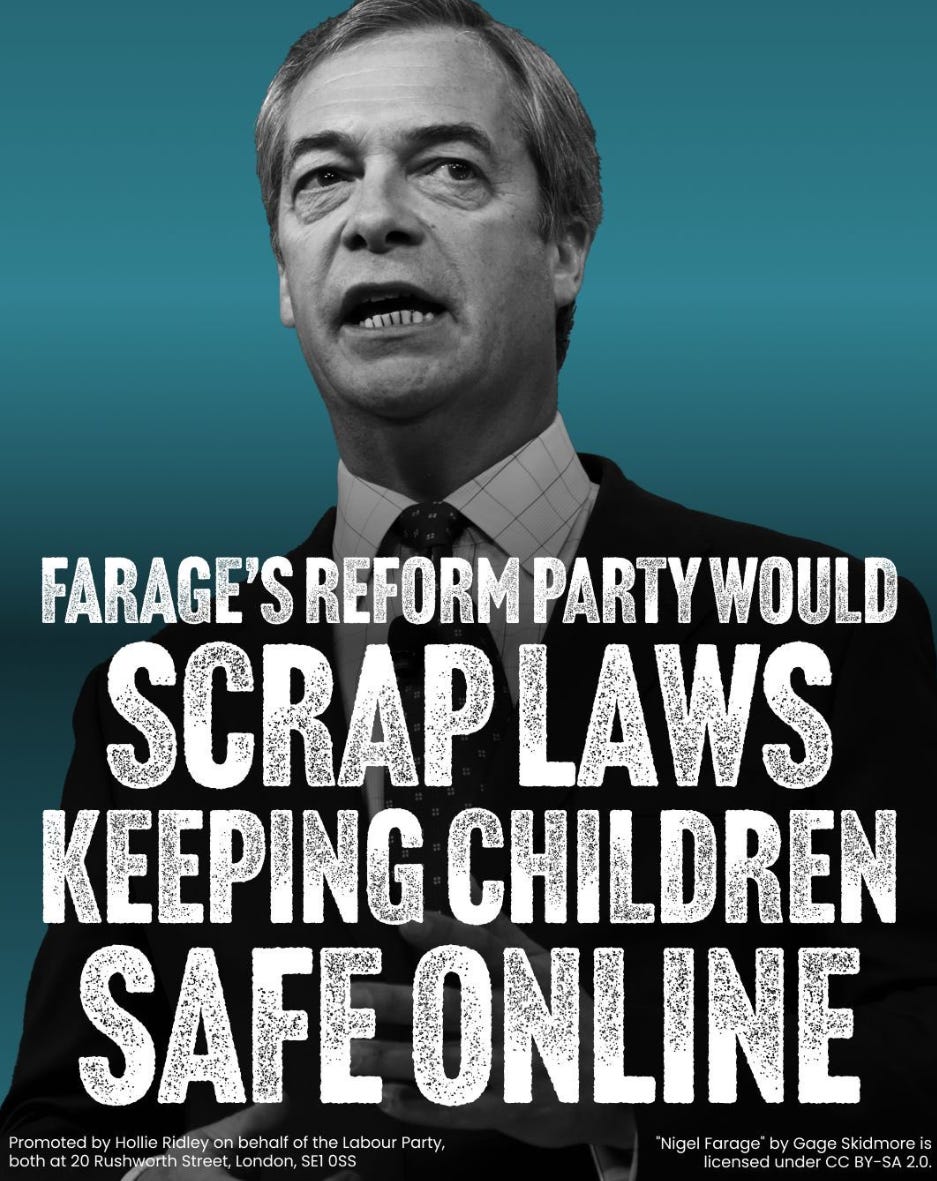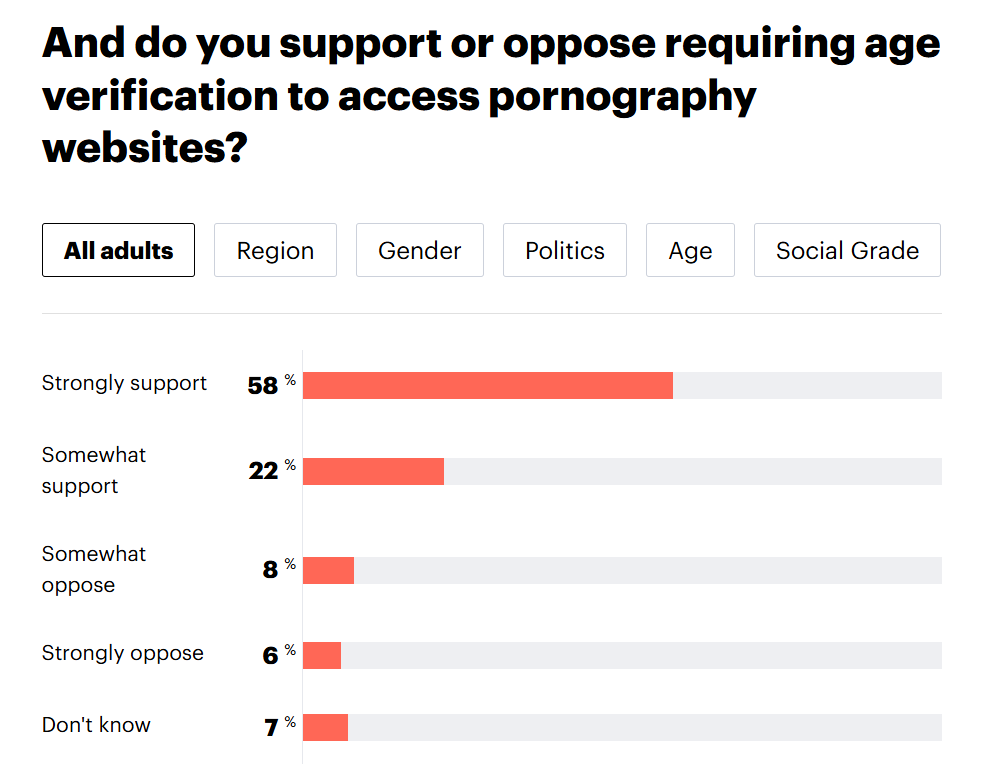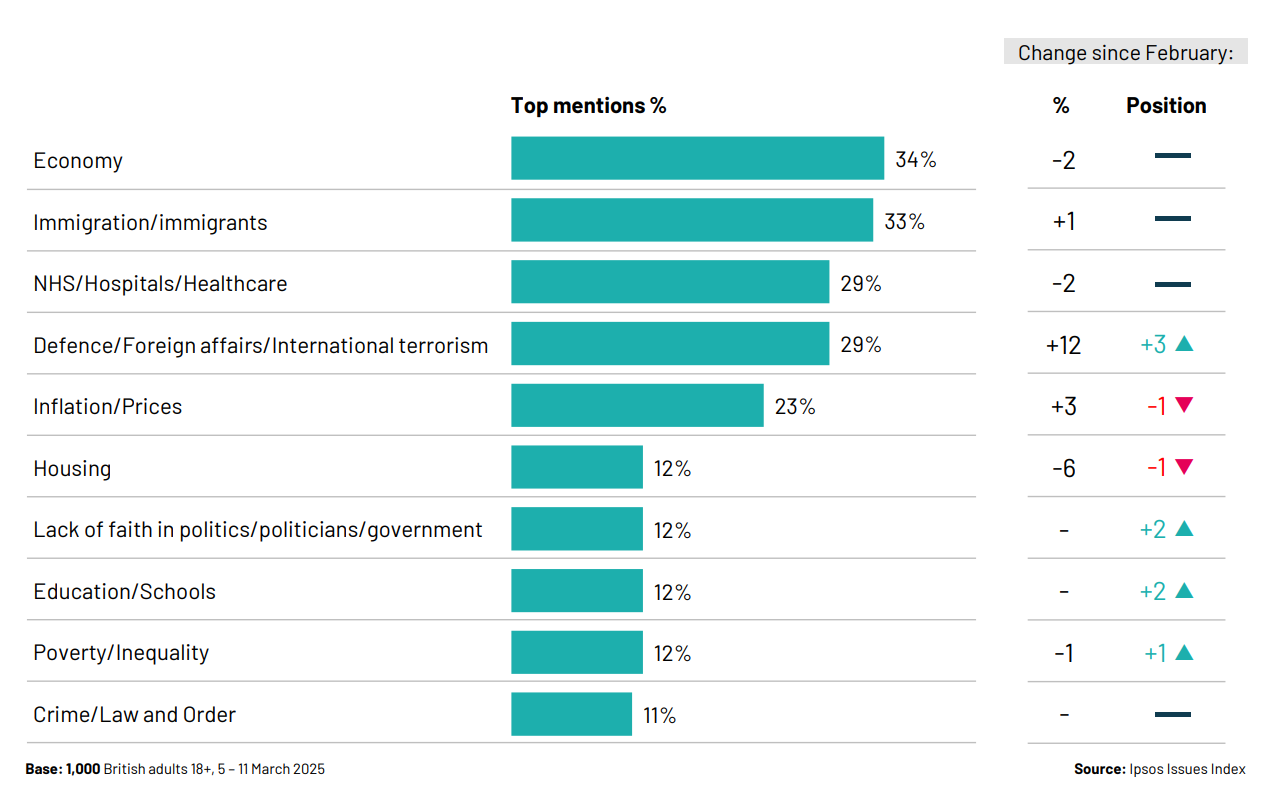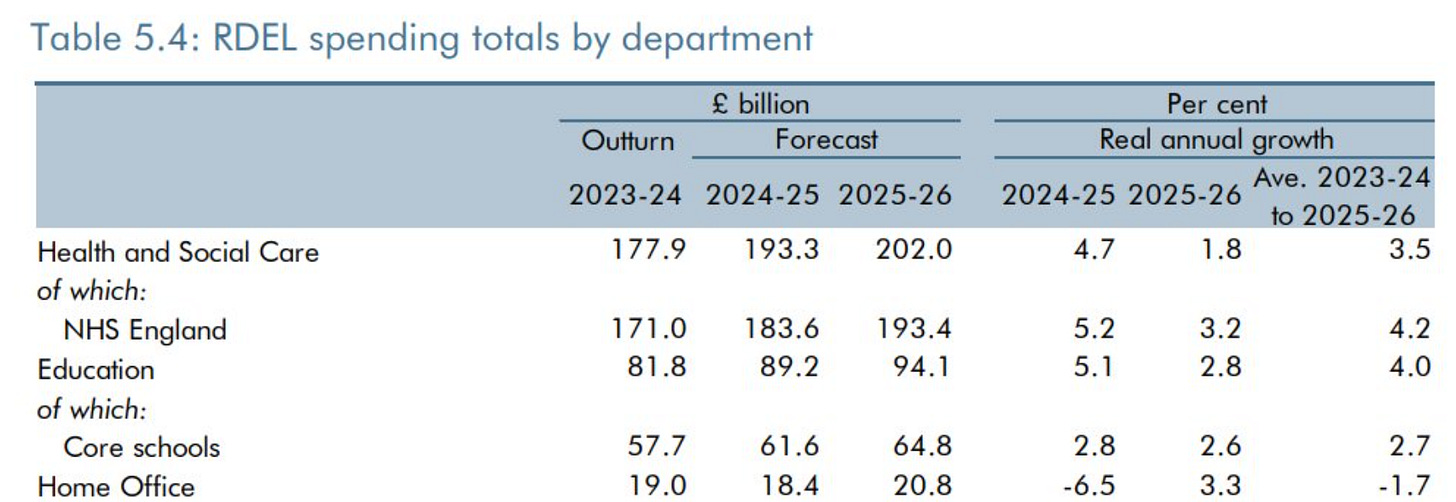The Lazy Surveillance State Strikes Again
The UK government's private data demands keep growing
Right, before we begin, we have to explain a bit of British slang to our American friends.
The term in question is ‘nonce’ and we’re talking about it because the UK government effectively just used this derogatory phrase to attack it’s perceived main political rival, the Reform party.
Why is it so inflammatory to call somebody a ‘nonce’? Well, because it basically means you’re a child sex offender.
In case you wanted some context, Nigel Farage voiced concerns about the Online Safety Act (OSA), which, amongst other things, forces consumers to hand over a form of ID to a website or platform if they want to watch ‘adult content’. The hope is that children are now shielded from porn.
Why did the Reform leader do this now? Because parts of the OSA have just come into force and millions of frustrated people (in more ways than one) have been hit by the age verification gating for the first time.
Farage and his team have pointed out that children can easily skirt around these digital bouncers by using VPNs — downloads of which have soared over the last 48 hours in the UK (link) — and the OSA is actually causing more harm than good.
But in what has since emerged as a premeditated media attack (Number 10 signed it off), the Science and Technology Secretary Peter Kyle then alleged that Farage would have been on the side of Jimmy Savile, the notorious serial child rapist, if he were alive today because of his anti-OSA stance.
Cue the rightful outrage from Farage, who’s called for a public apology from Kyle. But instead of backing down, the Downing Street operation has doubled-down on the outlandish incident by publicly supporting the Secretary of State and launching a social media campaign against Farage.
It’s extraordinary stuff, but if you look closely there are at least three layers to the story. Firstly, the Prime Minister, his government and the Labour Party more generally is scoring badly in the public opinion polls.
The consensus is that Starmer’s first year in office has been a bad one, with Labour dropping more than 10% in the popularity rankings. Reform, meanwhile, has surged, landing the occasional double-digital lead over Labour.
This has allowed Farage and his party to build-up political momentum and secure disproportionately strong (the party only has a handful of MPs) media coverage.
The UK has also entered its summer months and the annual ‘silly season’ of low-quality news is well underway.
Spotting a politically unagile PM and a hungry pack of journalists, Reform has sought to take advantage of the situation by holding weekly press conferences where Farage announces a new policy or unveils a defection to his party.
It looks like Number 10 has got wise to these tactics and has deployed a dead cat strategy, implying that Farage is an accidental ally of child sex predators and undermining his media momentum at the same time.
This leads us to the second layer of the OSA debate — is it really a dead cat for voters? Though the OSA has been opposed by digital rights groups and others have pointed out its obvious practical flaws, the British public have supported aspects of the legislation.
When asked about the age verification barriers, 58% of voters said they strongly supported the move, according to YouGov (link). Not only that, but four in five adults want social media companies to be held legally responsible for the content shared on their platforms (link).
It seems that the voters are more aligned to Kyle’s position on the OSA than Farage, at least in selective framings of the legislation.
And, frankly, when people do go to the ballot boxes next May (link), they won’t be thinking about the legislation. The economy, immigration and the NHS will continue to be the main political issues.
With that in mind, Number 10 has just been able to trial an underhanded attack against Reform, luring the insurgent but operationally smaller party onto contentious ground and putting its attack and rebuttal approach under stress.
If Starmer’s advisers like what they saw, expect more of this in the future. This is the second layer. The third and final layer is a lot more cynical.
The hullabaloo around Kyle’s comments has totally overshadowed a serious debate the Labour government wants to avoid: If it really cares about protecting children and stopping heinous crimes like sexual violence, why doesn’t it increase the number of police?
In reality, the Home Office is one of the few major ministries to actually have a real-terms budget cut under Starmer and his Chancellor Rachel Reeves. The below is taken from the Office for Budget Responsibility’s latest forecast:
Reform has missed a trick by not asking this basic question about policing. And it’s one which comes up time and time again in relation Digital IDs.
Advocates claim such intrusive technologies will stop illegal immigration and crime, but they fail to produce any evidence for this, and then melt away when you raise the police or border point.
As I’ve quoted elsewhere, here’s what the late Ross Anderson said (link) when spy agencies wanted to hack into everyone’s WhatsApp messages:
“We do indeed need to spend more money on reducing violent crime, but it should be spent locally on hiring more police officers and social workers to deal with family violence directly. We also need welfare reform to reduce the number of families living in poverty.”
Unfortunately, the UK government has adopted what I’ve described as a ‘lazy surveillance state’ policy, where privacy is eroded in the name of safety but nothing really gets done — at least not in a preventative sense.
And all the while new databases chock-full of sensitive information are being assembled, creating fresh targets for hackers. Or, failing that threat, the state could just hand the data over to private companies, as was the case in 2022 (link):
The UK’s data watchdog has formally reprimanded the Department for Education for granting unlawful access to millions of children’s information that was then used for gambling age-verification checks.
The department has narrowly avoided a £10m fine after it wrongly gave an employment screening firm access to a database of 28 million pupils’ qualifications, in what the Information Commissioner’s Office called a “serious breach of the law”.
To put the above story in context, the aforementioned ICO, the UK’s data regulator, also estimated that there was a 8,000% increase in the number of people impacted by financial data breaches in central government between 2019 and 2023.
More databases or more police? I’ll take the latter.
The Political Press Box
Find my latest long-form audio interviews of political communicators here. Please like, subscribe and listen.
📧 Contact
For high-praise, tips or gripes, please contact the editor at iansilvera@gmail.com or via BlueSky (link). Follow on LinkedIn here.
214 can be found here
213 can be found here
212 can be found here
211 can be found here
210 can be found here
209 can be found here






